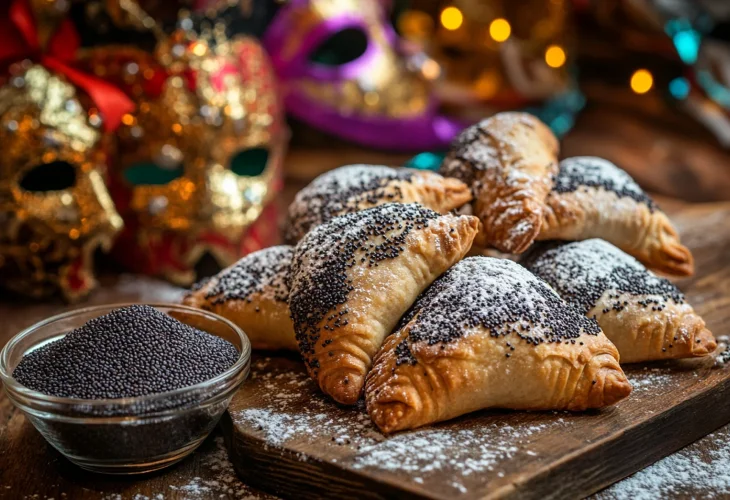Discovering the Healthiest Fillings for Hamantaschen: Insights from Dr. Maya Rozman
With Purim on the horizon, dietitian Dr. Maya Rozman shares everything you need to know about the popular fillings in hamantaschen and how to make the treats even healthier.

As Purim approaches, Dr. Maya Rozman sheds light on poppy seeds—the classic filling for hamantaschen—noting that they are not only delicious but also packed with impressive nutritional benefits.
"Every year, we eagerly await Purim's gift baskets, hamantaschen, and traditional sweets. But is it possible to enjoy the festivities without sacrificing health and maintaining our weight? What nutritional value do poppy seeds, which fill these desserts, truly offer?" wonders Dr. Rozman on her 103fm program.
Dr. Rozman explains that "the poppy plant family includes over a hundred species, but opium poppy is the most critical for culinary and medicinal purposes. It provides key drugs like morphine, codeine, and narcotine—used for pain relief and sedation. While the medical use of poppy is tightly controlled, poppy seeds themselves do not contain significant narcotics and are safe for consumption."
She adds that poppy seeds boast 500 calories per 100 grams, 43% fat—mostly healthy unsaturated fats—and are rich in calcium and iron. "This makes them an excellent food choice for vegetarians, vegans, and pregnant women," she notes.
Dr. Rozman emphasizes that less finely ground poppy seeds don't digest fully, with some passing through the body as they entered—meaning not all calories and minerals are absorbed. "This is also true for sesame and other seeds," she notes, highlighting: "Use freshly ground poppy seeds to enhance nutritional value and enjoy the benefits of iron, calcium, and fiber. It's recommended to grind close to consumption because the oils in poppy seeds oxidize quickly."
She refers to a study published in the Journal of Agricultural and Food Chemistry, which found that rapid oxidation of fats in poppy seeds can alter flavor and harm nutritional value. Thus, proper storage and quick consumption after grinding are advised.
"Poppy seeds oxidize fast due to their high-fat content, so improper storage can make them bitter and unfit for eating. Whole poppy seeds should be kept cool and dry in an airtight jar to last several months in a dry, cool place," concludes Dr. Rozman. "Ground poppy seeds—store in the freezer to maintain freshness and prevent oil oxidation. They last about two weeks at room temperature, but up to six months when frozen."
When asked how to make hamantaschen healthier, she replied: "Classic hamantaschen are loaded with sugar, butter, or margarine, turning them into a high-calorie dessert." However, there are ways to upgrade them to a healthier version: swapping white flour for whole spelt flour or ground oatmeal for added fiber and satiety; reducing sugar; using coconut or olive oil instead of butter or margarine and adding ground nuts or almonds to the poppy filling. "With a little creativity, you can enjoy healthy, delicious hamantaschen while maintaining the magical spirit of Purim," she concluded.

